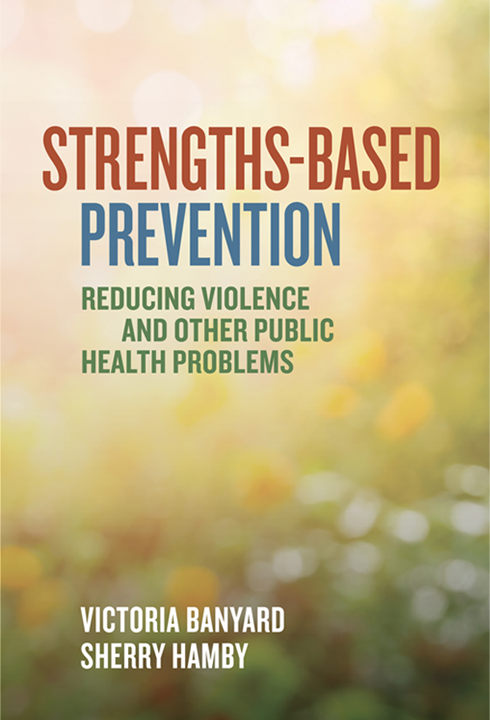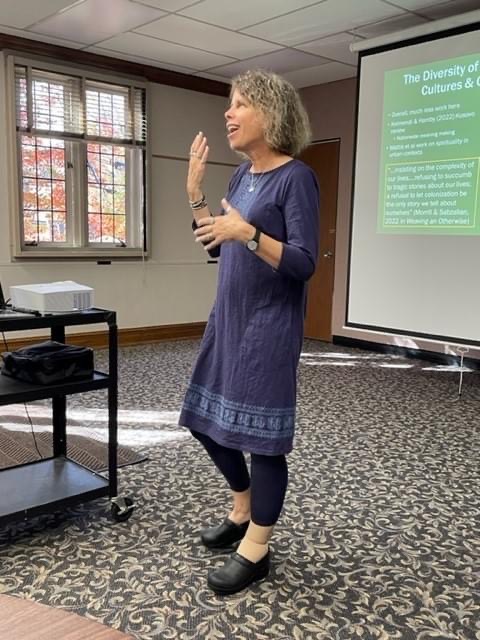Thank you for joining us for the Fall 2022 Workshop!
Drs. Banyard and Hamby enjoyed seeing everyone who attended and they look forward to the next workshop.



This workshop has already passed. Be on the lookout for an online webinar of the workshop.
Read what others are saying about the Prevention Workshop!
“Victoria and Sherry were very knowledgeable on the topic and passionate about the work, which made learning from them a privilege. Very personable and easy to approach with questions. I greatly appreciated how interactive this experience was and really just grateful for the opportunity to attend.”
–Paige Kean, Couple and Family Therapy Program, Kansas State University
“Incredibly approachable and effectively (and quickly) built and fostered a meaningful community. I found this workshop incredibly helpful, both for building my knowledge base and toolkit of strengths as well as increasing my sense of community in the field. A very welcoming and supportive environment that I am so glad to have been a part of–thank you!”
–Casey Burton, Developmental Psychology program, Virginia Commonwealth University
This workshop presents new ways of thinking about prevention that focus on building assets and resources. Drawing from state-of-the-art research on a range of behavior problems – such as violence, drug abuse, suicide, and risky sexual activity – Victoria Banyard and Sherry Hamby present a strengths-based approach to prevention. This hands-on workshop provides practitioners and researchers with the strategies that really work to decrease violence, substance abuse, and related problems.
Historically, most prevention efforts have focused too much on admonishment and knowledge transfer, despite years of evidence that such programs are ineffective. Our recommendations synthesize research on behavior change from a variety of disciplines, including psychology, public health, sociology, criminology, resilience science, critical race theory, and even urban planning. We introduce a new model, the prevention portfolio model, that emphasizes that the key to successful prevention is building enough protective strengths to insulate people from risks.
Come learn about which approaches have the strongest evidence base and how to incorporate mindfulness, bystander programs, social marketing, and social norm strategies, as well as think systemically to promote wellbeing and insulate people from trauma. The workshop will help participants re-imagine prevention with protective factors at the center.
This workshop is geared toward psychologists, educators, social workers, advocates, and preventionists in any field. If you are looking for fresh perspectives on prevention, we hope you will join us.
**We plan to turn this into an online course at a later date, but this fall training workshop is 100% in person.
All attendees will receive a copy of the 2022 book, Strengths-Based Prevention: Reducing Violence & Other Public Health Problems by Drs. Victoria Banyard and Sherry Hamby.
We are offering CE credits for this workshop.
The Institute on Violence, Abuse and Trauma (IVAT) is approved by the American Psychological Association (APA) to sponsor continuing education for psychologists. Institute on Violence, Abuse, and Trauma (IVAT) maintains responsibility for this continuing education program and its content. The California Board of Behavioral Sciences (BBS) now accepts American Psychological Association (APA) continuing education credit for license renewal for LCSWs, LMFTs, LPCCs, and LEPs. Institute on Violence, Abuse, and Trauma (IVAT) is approved by the California Board of Registered Nurses to offer continuing education for nurses (CEP #13737). IVAT is approved by the State Bar of California to offer Minimum Continuing Legal Education for attorneys (#11600). IVAT is approved by the California Consortium of Addiction Programs and Professionals (CCAPP) to sponsor continuing education for certified alcohol and drug abuse counselors (Provider #IS-03-499-0223).
Learning Objectives:
- Participants will be able to describe at least two ways that specific strengths-based prevention can improve upon current limitations in prevention effectiveness.
- Participants will be able to apply at least one aspect of the Prevention Portfolio Model to their teaching, research, or practice.
- Participants will learn at least three tools to implement strengths-based prevention approaches in their own setting.
- Participants will understand at least three ways that systemic and environmental interventions can support prevention.
- Participants will be able to identify at least two problems with existing prevention efforts, such as over-reliance on admonishment programs and boomerang effects.


